You are here
Back to topAPRNEWS : Tidjane Thiam, a bitter enemy

APRNEWS : Tidjane Thiam, a bitter enemy
APRNEWS - In the past, competing political forces presented their plans for society to the public. In principle, these were based on a diagnosis of the problems facing society, identifying the nature and scale of the social demand to which it was important to formulate a political response. Each candidate would put forward his or her arguments and promises, with a view to winning the votes of the electorate. The courtesy of controversy and the art of elegant seduction that once prevailed have now given way to the rhetoric of easy insults, lies and the demonisation of political opponents. And, for some time now, this ministry of dirty work has fallen to a certain press, in return for payment. Under our skies, Tidjane Thiam is the sacred target of this new breed of journalists, these mercenaries of the pen. It would be tedious to examine each of the spurious assertions made by the newspapers united against Thiam. Instead, we will analyse only the most recurrent and the most needlessly incriminating.
In this week's political news, as on many other occasions, a colleague has devoted pamphlets to Tidjane Thiam. Without preamble, Joël Ettien writes: "Thiam, the man in whom many PDCI militants have placed their hopes, seems to be putting his priorities elsewhere, and is even refusing to contribute his expertise to the country... While novices boast that he is challenging candidates opposed to the PDCI RDA, Thiam is announced to be at the Vatican and in the service of the Holy See". We can already condemn this article, which fails to relate the facts to the historical, social and even artistic circumstances that produced them. What are these circumstances?
Capitalism's profit-maximising logic accentuates the suffering of the worker, argue its critics. As a result of widespread standardisation and commoditisation, they argue, money has become a divine power exercised over people's thoughts and actions. This economic system must simply disappear, these economic analysts demanded. Faced with this incensed indictment, the Holy See set up the "Council for Capitalism inclusive with the Vatican" with a view to reforming the capitalist system. At the Pope's request, Tidjane Thiam joined the 27 leading figures in global capitalism. The task of this group is to turn the capitalist system into an inclusive instrument, stripped of the fetishism of commodities and money. Capitalism will henceforth combine justice, profit and moral virtue. It will put people at the centre of its actions.
Tidjane Thiam's new commitment is therefore an act of faith and a work of pure humanity. His inclusion in the "Council for Inclusive Capitalism with the Vatican" is nothing less than the recognition of a brilliant intellect and a tribute to his strategic vision of the team. His recognised acute sense of organisation means that he is able to manage several projects at once, with maximum efficiency, entrusted to him by the world's leading decision-makers. Through his culture, his career and his profession, the banker has become an incredible witness to the radical changes taking place in the world. Enough to intimidate potential political adversaries in his own country. Hence the media onslaught against him.
Why else would Tidjane Thiam have refused to lend his expertise to Côte d'Ivoire? Could his humanist "oath" to bring capitalism more into line with human expectations be proof of a lack of interest in his country? No! The truth lies elsewhere.
After his studies, in 1994, Tidjane Thiam chose to return to his country. First as CEO of BENETD, then as Minister of Planning, he led the ambitious "12 works of the African elephant, including the current 3rd bridge" project. This structuring project, launched by Konan Bédié in 1996, established the image of the "Ivorian pachyderm" who wanted to become as powerful as the dragons of Asia. Thiam's compatriots had legitimate hopes of an industrial boom and an emerging economy, when in 1999 a coup d'état placed the country under the rule of an illegitimate government.
Many Ivorians, including Tidjane Thiam, left the country with the hope of a swift return. The illusion of normalisation gave way to a much crueller reality 3 years later: a rebellion disfigured the country, resulting in 3,000 deaths, rapes and killings, mutilations and kidnappings. In short! Violent crime increased in just a few months. Even today, there are reports of inter-ethnic clashes. There is a heightened risk of a resurgence of hostilities. So those in power are constantly threatening their political opponents, betraying the dream of reconciliation and unanimity rebuilt beyond the social rift, and the impossibility of thinking of the political present outside this trauma. These are the realities against which we must analyse the Tidjane Thiam dynamic.
Instead, the man is attacked from all sides. Through the press, his opponents almost compulsively put forward the argument of his relatively long absence from the country. They even draw the conclusion that Thiam does not feel concerned by Côte d'Ivoire. In truth, this is a relentless effort to ruin the banker's social and political image, a ruse designed to lower his standing in the eyes of his compatriots. The manipulation is obviously very practical. Precisely because the aim is to weaken a potential presidential candidate, a competitor whose natural lead is such that no one can ignore it.
The banker's tireless "enemies" have no shortage of grievances, and the former Ivorian minister is being called out for his supposed lack of heroism. Journalist Joël Ettien declared peremptorily: "the PDCI needs new blood and a courageous man, capable of sacrificing himself to give it a second life... Thiam has turned his back on it...". How ridiculous!
Tidjane Thiam has just been made a member of the PDCI's political bureau by its president, Henri Konan Bédié. At the party's last pre-congress meeting in Abidjan, Thiam was publicly counted among the PDCI militants who had paid their dues. The young Ivorian financial economist was absent due to long-standing commitments in Europe. Is it still reasonable to speak of a lack of interest in his political party or his country?
Thiam is rather of a calm personality who hates agitation. He never acts either vehemently or in haste. Above all, he does not want to be a hero to be celebrated. Heroism is certainly centered on courage, and the hero is a man firm against difficulties, fearless in peril, and very valiant in battle; qualities which have more to do with temperament, and perhaps with a certain conformation of the organs, than with nobility of soul. And, true nobility of soul would imply both dispositions cultivated over time and a wider range of virtues. Moral insufficiency always leads to political insufficiency: heroism does not, by itself, make a great statesman. Great men are less conquerors than rulers who do the work of stabilization, consolidation and long-term vision. They abhor any thundering approach and listen only to the public good, the prosperity of the State, and the happiness of the people. Do not wait for them on the ground of physical confrontation. They are more subtle.
Par Jean Clotaire Tétiali







